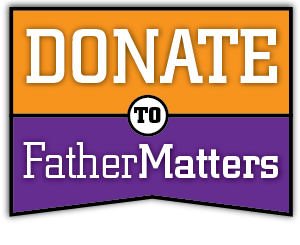February 2016 Financial Matters – Stuart Burns
It’s that season of the year that a lot of people don’t look forward to when Uncle Sam wants to reconcile finances with you – also known as tax season. This month we are going to review some tips we can be doing to make the process less painful and possibly get some more money back in your pocket. This is just an extension of the overall disciplines we need to establish to maintain control over our full financial picture.
Let’s jump right into some common suggestions to prepare.
- Get organized – Keeping up with receipts and recording deductions throughout the year can make a huge difference when at tax. This will help you get the best refund possible. Let’s review a few possible ways to maintain receipts and records.
- My wife and I maintain a spreadsheet/database with our budget for placing costs for things such as medical expenses, tax payments, and charitable giving. This gives me information quickly at the end of the year
- You can save all receipts/canceled checks in envelopes to have readily available
- Make sure you have all the forms you need:
- Make sure you have all forms you need for income- Start with your income and all W2’s and any interest gained.
- By the end of January, every employee should get Form W-2 from their employer showing how much was earned, how much was taxable and just what taxes were withheld. If you have more than one job, you should get a Form W-2 from each employer.
- Wage income isn’t the only earning that the IRS taxes. Are you saving money for your child’s college, a new house or retirement? Good for you — and the taxman. Interest earned on most savings accounts is taxable. You should get statements from each of the account holders, as well as official tax forms. Copies of the forms also go to the IRS.
- Educate yourself on deductions – Don’t leave money on the table. Tax laws are constantly changing and you should make sure you are aware of the latest deductions. Look up new changes on the internet or get the actual little tax booklets. Some examples of common deductions you might not realize you are entitled to include;
- Taxes you pay for car tags each year – these can be deductible if you itemize
- Homeowners know the value of a mortgage. Not only does the loan get you into your house, the interest you pay on it is tax-deductible. Your lender will send you Form 1098 with this amount. Some financial institutions, such as Bank of America have these available online.
- Mortgage interest isn’t limited to your primary residence. If you have a vacation home, interest on that loan will be on a separate Form 1098 and it is just as deductible.
- The interest you paid on a home equity loan is also deductible.
- Homeowners can also claim real estate taxes as a tax deduction. The Form 1098 you get from your lender will tell you this amount.
- More deductions you might be entitled – Have you given to a charity? Have you donated clothes?
- When you give cash to a qualified charity, get a note from the group acknowledging your gift if it was $250 or more. If your donation was smaller, you don’t need a formal receipt, but you will need some sort of documentation, such as a canceled check or bank or credit card statement, in case the IRS later has any questions.
- Are you dropping off clothes and household items at a local collection center? Get a receipt for those. And make sure that the articles were in good shape. The IRS can deny deductions for anything that it deems of “minimal monetary value.”
- Save time and file online – Electronic filing is the easiest way to submit your tax return. E-filing saves time by avoiding the long lines guaranteed to be at the post office and you save on postage.
- Some of the services such as H&R Block, Turbo Tax, and others allow you to file federal taxes at no costs and have simple programs to guide you through the process
- Protect yourself –The risk of identity theft cases increase during tax season. Arizona is also one of the states with the highest number of identity theft incidents. Because of all the information you need to relate on taxes forms you need to protect information.
- Having a solid security program installed on your computer is critical for protecting you and your personal information.
- Beware of phishing emails and immediately report anything suspicious.
- Never provide your social security number through email. The IRS will never send any electronic communication requesting your personal information. If you have received emails inquiring for this type of personal information, it should be reported to the IRS.
- The latest scam involves perpetrators calling people and posing as IRS agents and demanding immediate payments over the phone or the person would be arrested. The IRS does not work this way and would not threaten people with arrest.
- Because we are required to keep tax records for a number of years, make sure that all information is kept in a secured location and never leave information, such as your Social Security Number, in plain view.
- Don’t be late – The deadline for filing you taxes is midnight on April 15th. If you are unable to complete your return by the due date you can request an extension. The deadline for submitting the extension form is also April 15th.
- Talk to a Professional– Don’t hesitate to discuss your situation with a professional if it appears confusing
- Some taxes are more complex -particularly if you are self-employed or have done a lot of investing.
- Companies such as H&R Block, Tax Act, Turbo Tax, and others will help prepare taxes at lower costs and even back the return so that if there are questions they will support you.
Hope these suggestions will help you prepare for the tax season and don’t forget that this is really just and extension of our disciplines like budgeting and organizing your finances.
Don’t forget to listen to Vance on “The Father Matters Show” on Faith Talk 1360AM.
For some great financial tools and resources go to: http://learn.bankofamerica.com/money-management/ and http://www.bettermoneyhabits.com or contact Stuart Burns at 602-464-1381 or email me at stuart.j.burns@bankofamerica.com




